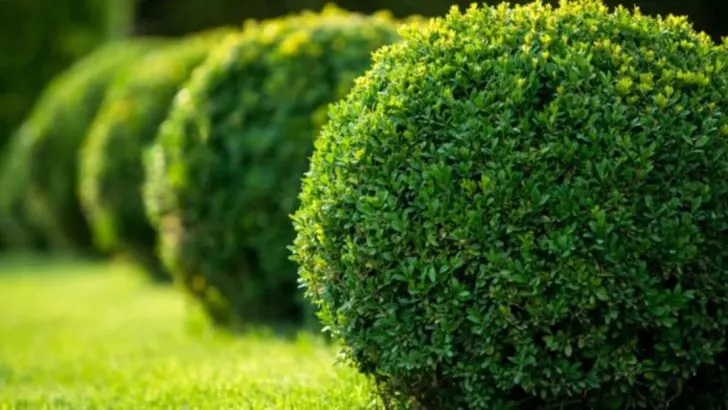Living in a city often means dealing with constant noise from traffic, construction, and crowded streets. However, strategically placing sound-absorbing plants in your garden, balcony, or backyard can help create a more peaceful and relaxing environment.
Certain plants, such as dense shrubs, tall grasses, and leafy trees, act as natural sound barriers by deflecting, absorbing, and diffusing noise pollution. Bamboo, hedges like boxwood or privet, and large-leafed plants like elephant ear not only help block noise but also add beauty and greenery to urban spaces.
Discover 11 effective noise-reducing plants that can transform your home into a quieter, more serene oasis, even in the heart of the city!
Bamboo
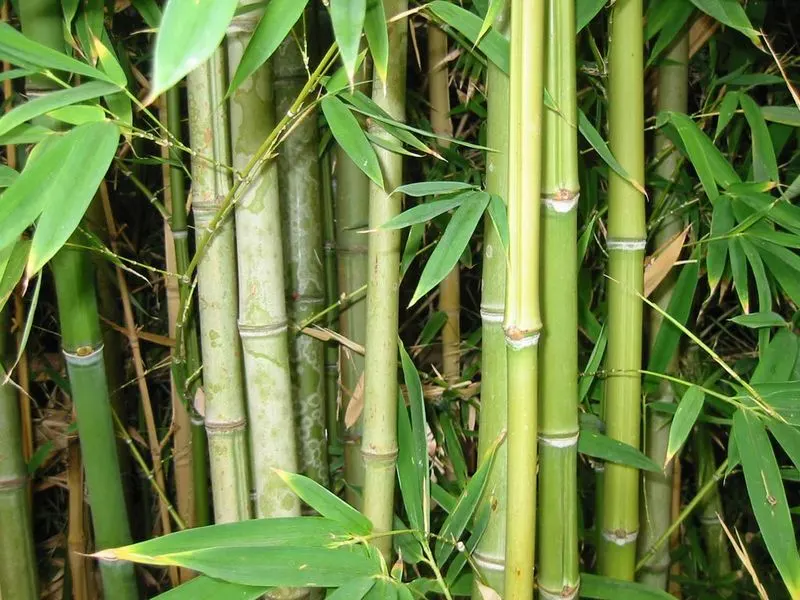
Bamboo is not just a panda’s favorite snack; its tall, dense growth makes it an excellent noise barrier. Each slender stalk acts like a natural sound wall, absorbing and deflecting sound waves. City gardeners love its rapid growth, ensuring privacy and tranquility within months. Although primarily a tropical plant, some hardy varieties thrive in cooler climates. Its calming rustle adds a serene soundtrack to urban gardens. For those with limited space, dwarf bamboo varieties offer a compact solution. Ideal along fences or as a hedging plant, bamboo brings a touch of exotic elegance to any urban setting.
English Ivy
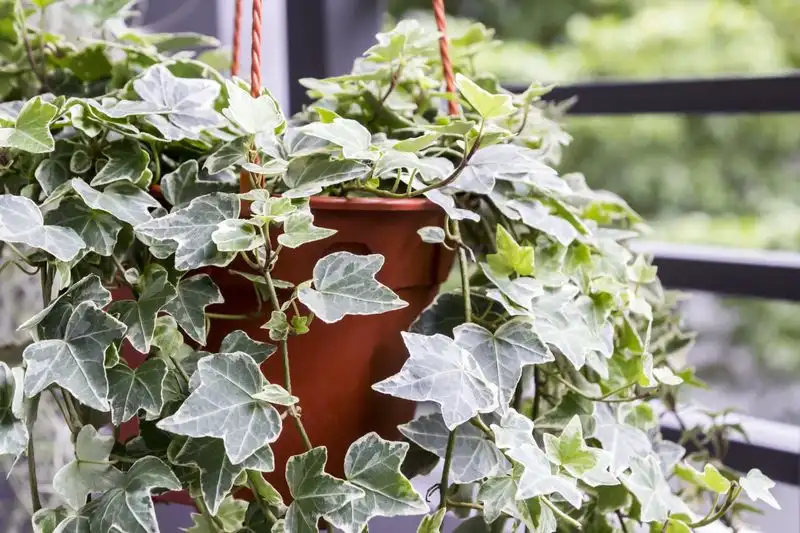
English Ivy transforms dull urban spaces into green havens with its cascading foliage. Known for its ability to cover walls and structures, it effectively reduces noise by absorbing sound waves. Its evergreen leaves provide year-round beauty and noise reduction. In addition to its acoustic benefits, English Ivy improves air quality by filtering pollutants. Its climbing nature allows it to thrive in vertical gardens, ideal for small urban balconies. With minimal care requirements, this plant is perfect for busy city dwellers who crave a natural touch in their concrete surroundings.
Holly
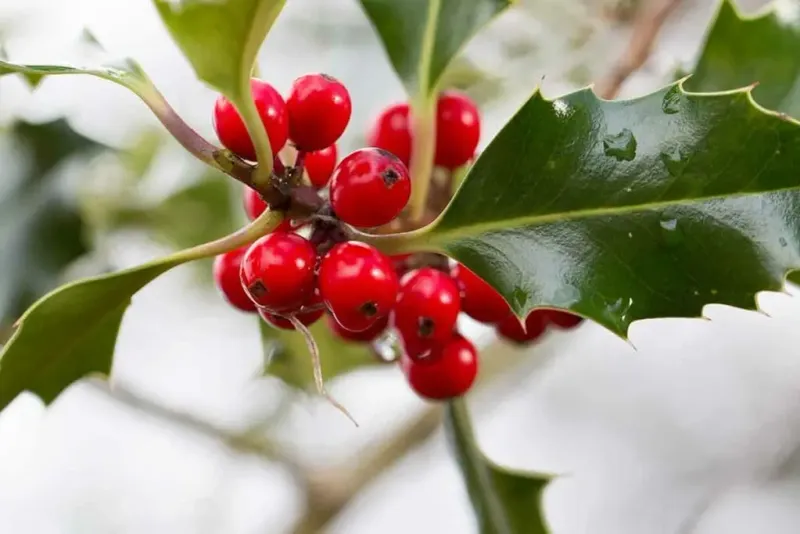
Holly bushes, often associated with festive decorations, offer more than just seasonal cheer. Their dense foliage acts as a natural sound barrier, making them a popular choice for urban gardens. The spiky leaves and vibrant red berries add year-round visual interest. Beyond aesthetics, hollies provide shelter for urban wildlife, attracting birds and beneficial insects. With varieties ranging from dwarf to tree-like sizes, hollies can fit any space requirement. Their resilience to pollution and robust nature make them ideal for city environments, contributing to a quieter and more vibrant urban landscape.
Juniper
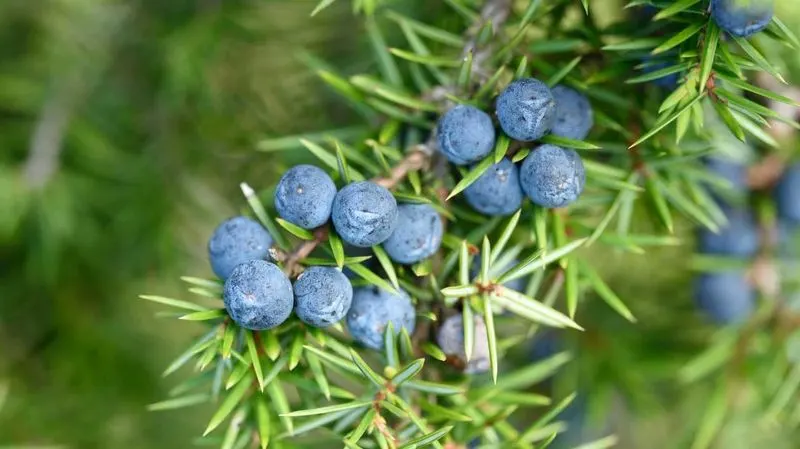
Junipers bring a rugged charm to urban gardens with their needle-like foliage and aromatic scent. These coniferous shrubs are excellent for noise reduction, as their dense branches absorb sound effectively. They come in various shapes and sizes, accommodating different spatial needs. Junipers are drought-tolerant and require little maintenance, perfect for the urban gardener with a busy lifestyle. Planted along roadsides or in parks, they help create a peaceful ambiance amidst city chaos. Their evergreen nature ensures year-round benefits, offering both aesthetic appeal and practical noise reduction.
Boxwood
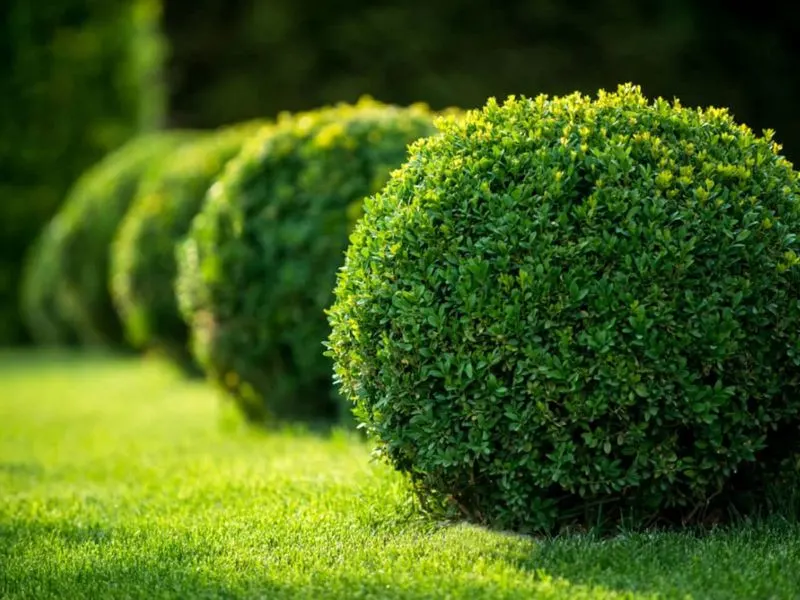
Boxwood is a classic choice for those seeking elegance and functionality in urban gardens. Known for its dense, evergreen foliage, it serves as an effective sound barrier. Its versatility allows it to be shaped into hedges, topiaries, or standalone shrubs, fitting any design preference. Boxwood’s compact growth makes it suitable for small gardens and balconies. While slow-growing, its longevity and hardiness against pollution compensate for the wait. Regular pruning enhances its noise-reducing capabilities, ensuring privacy and peace. Boxwood’s timeless beauty blends seamlessly with urban architecture.
Privet
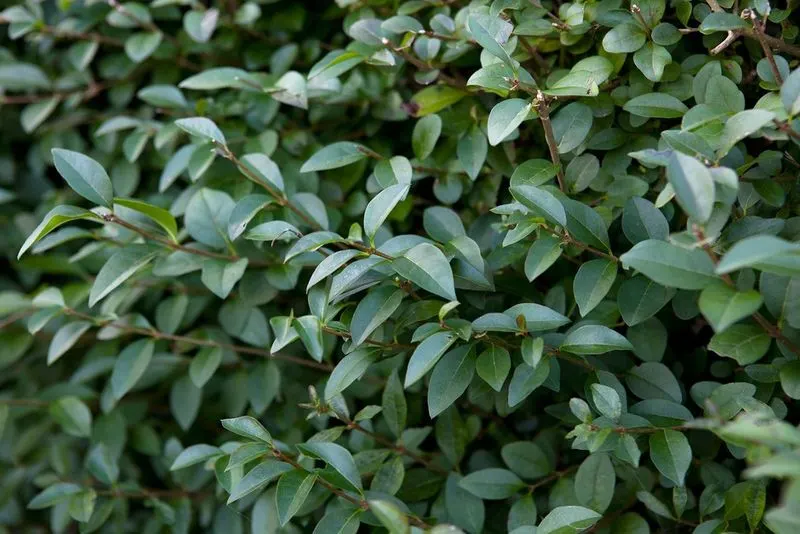
Privet hedges are a staple in urban landscapes, valued for their rapid growth and dense foliage. These features make them an excellent choice for noise reduction, as they block and absorb sound effectively. With varieties ranging from evergreen to deciduous, privets offer flexibility in aesthetic and maintenance. They can be pruned to create formal hedges or left to grow naturally for a more relaxed look. Beyond their acoustic benefits, privets provide privacy and wind protection, enhancing the urban living experience. Their adaptability to different climates ensures widespread appeal.
Spirea
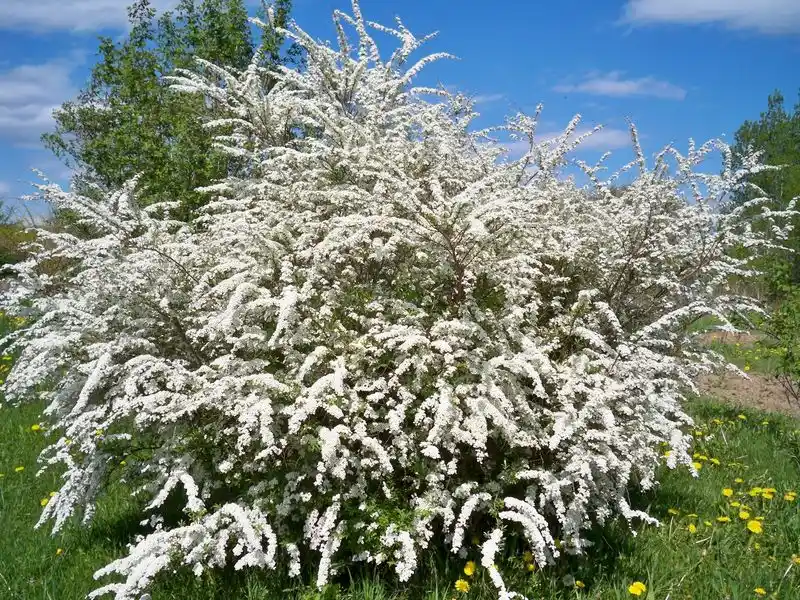
Spirea adds a splash of color to urban gardens with its vibrant blossoms and delicate foliage. This hardy shrub is not only visually appealing but also effective in reducing noise pollution. Its dense growth habit helps absorb and deflect sound waves, creating a quieter outdoor space. Spirea thrives in city environments, resistant to pollution and adaptable to various soil types. Regular pruning enhances its sound-dampening properties while encouraging more blooms. Ideal for adding seasonal interest, spirea’s lovely flowers attract pollinators, enriching urban biodiversity.
Bamboo Palm
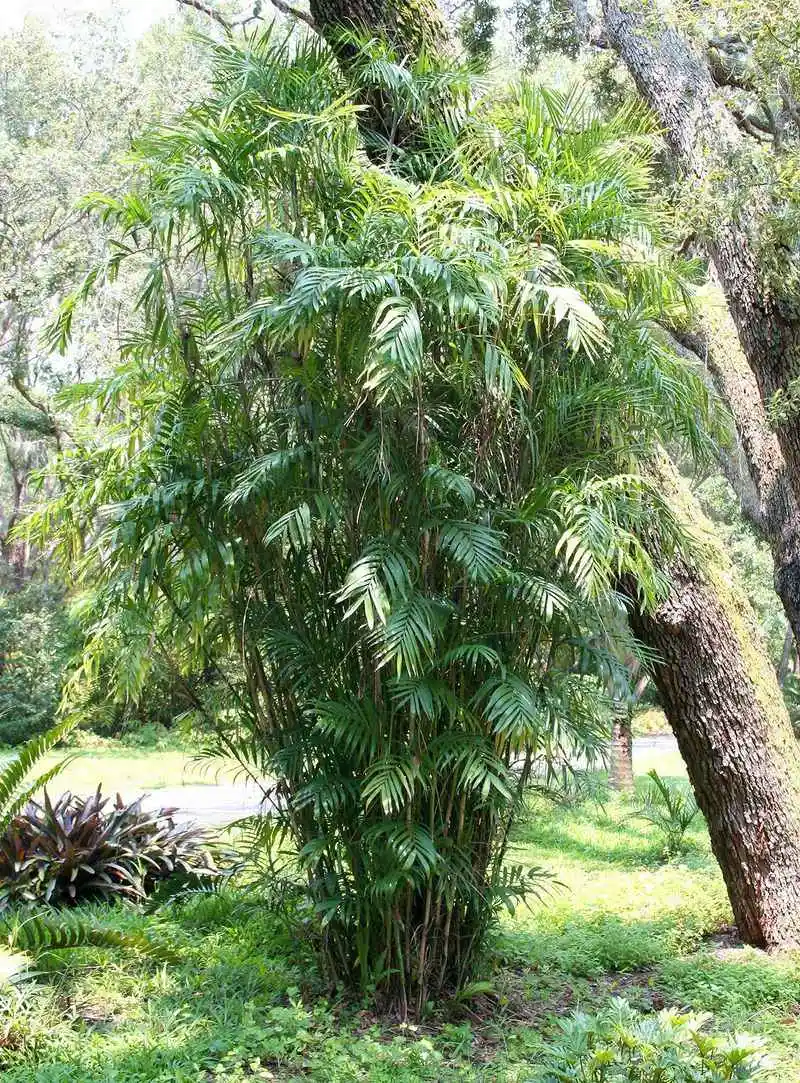
The Bamboo Palm, with its graceful fronds, brings a touch of the tropics to urban interiors. This indoor plant is known for its ability to reduce ambient noise, making it a favorite in city apartments. As it grows, its lush foliage absorbs sound, creating a serene atmosphere. Beyond noise reduction, the Bamboo Palm improves indoor air quality by filtering toxins. Its low-light tolerance and easy maintenance make it ideal for busy urban dwellers. Place it near windows or in corners for maximum effect, transforming city living into a peaceful retreat.
Cherry Laurel
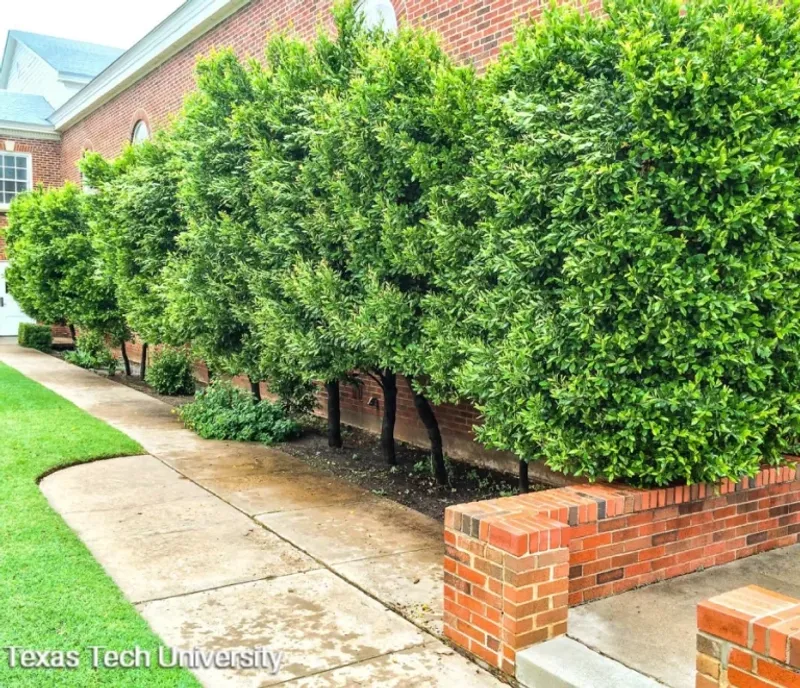
Cherry Laurel offers both beauty and functionality with its glossy leaves and delicate white flowers. This evergreen shrub is a popular choice for noise reduction in urban settings, thanks to its dense growth habit. It’s perfect for creating privacy hedges in gardens or parks, blocking unwanted sounds effectively. Cherry Laurel’s adaptability to different soil types and resilience against pollution make it a reliable urban plant. In spring, its fragrant flowers enhance the sensory experience, attracting butterflies and bees. This plant seamlessly integrates into urban landscapes, offering tranquility and charm.
Yew
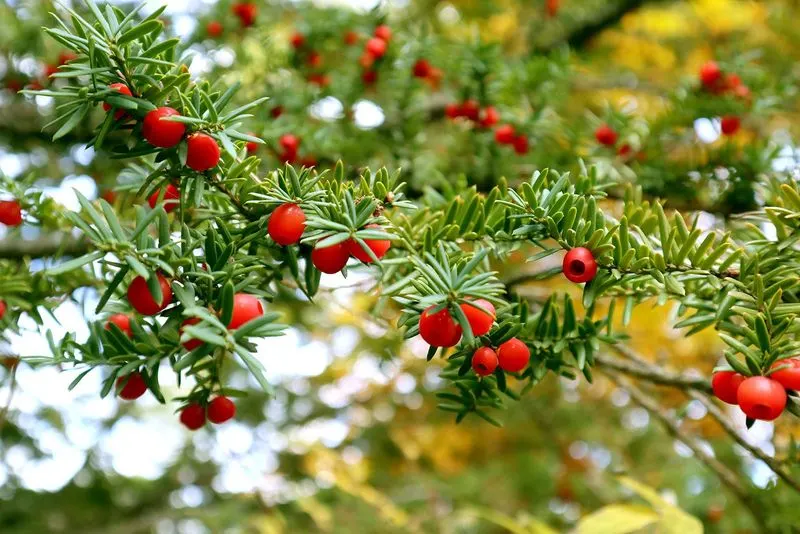
Yew trees, with their rich green needles, have been used for centuries as natural noise barriers. Their dense, evergreen foliage absorbs sound efficiently, making them ideal for busy city areas. Yews are highly adaptable, thriving in both sun and shade, and can be shaped into striking hedges or stand-alone trees. Their slow growth and longevity make them a sustainable choice for urban planners. Yews also provide habitats for urban wildlife, contributing to the ecosystem’s health. This timeless plant continues to be a favorite for creating peaceful urban environments.
Fern
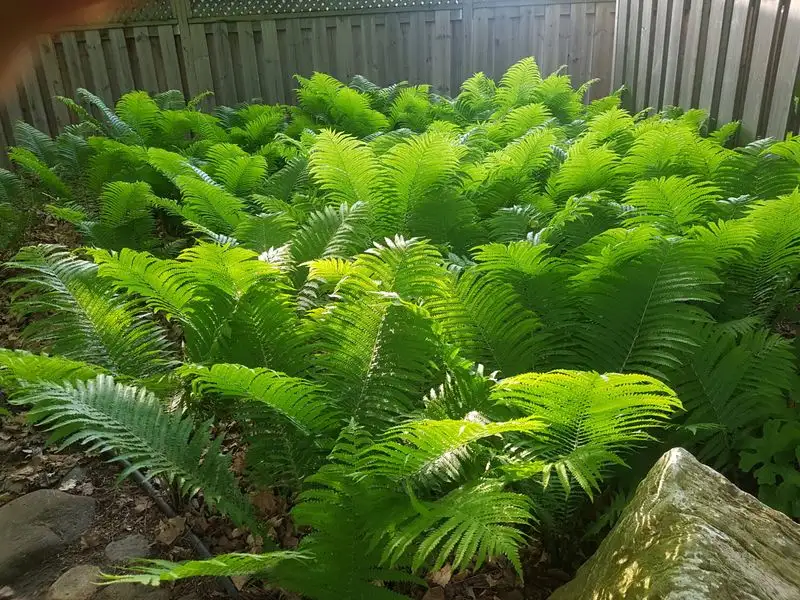
Ferns bring a touch of prehistoric charm to urban landscapes with their feathery fronds. Ideal for shaded areas, they help dampen noise by breaking up sound waves. Ferns thrive in moist, sheltered spots, making them perfect for city gardens with limited sunlight. Their ability to grow under trees or along buildings adds greenery to overlooked spaces. With a variety of textures and sizes, ferns can create dynamic, layered plantings. Beyond their aesthetic appeal, ferns improve air quality, providing a natural haven amid urban hustle and bustle.

